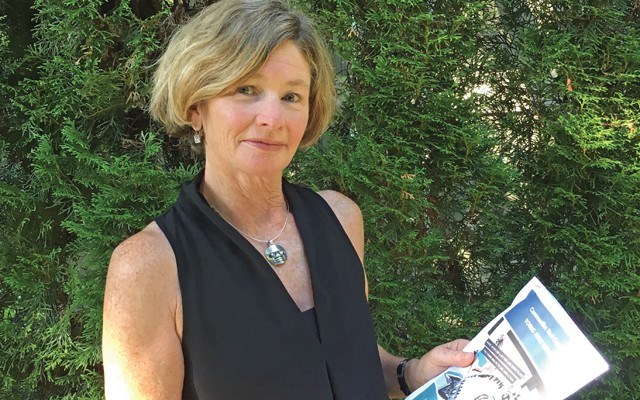It's Whistler's house of cards: Housing. And the newly released Communities That Care survey depicts a community in crisis.
The survey paints an obvious and worrisome picture of a resort community in which locals are losing rental accommodations to agencies such as Airbnb — while they also struggle to make enough money to live. Other effects are far less obvious.
"What I'm hearing is there's a real uptick in social problems that people are having because of this," said Cathy Jewett, board chair of Communities That Care (CTC). "Having a roof over your head is what gives you security for living."
After 2010, Jewett said the rental market changed.
"I think people started resorting to other ways of finding rental income because they couldn't earn enough money to cover their mortgage and we had a change in how people use their rental housing," she said.
"And now with the rise in real estate, we're seeing people who feel very unsure of their housing because their landlords want to sell."
The just-released online survey of 829 young adults (18 to 30 years old) revealed that 46 per cent of them had lived in Whistler for less than a year. About half of survey respondents cited "moderate to extreme stress levels" related to their financial situation — and affordable housing, low wages and high costs were their top three concerns.
The survey was conducted for one month in January. Previous surveys were done in 2006 and 2009.
The offshoot to those obvious resort-town issues is that the Whistler Community Services Society reported that, "out of 531 one-on-one sessions provided to the respondents from April 2015 to April 2016, mental health was the primary presenting issue for 191 sessions."
Jewett said the survey was reworked after 2006.
"We decided in 2006 that we needed to broaden our data. So that's why we undertook this because kids and families in the community are part of the behaviour," she said. "Observing behaviour in our parks, on the ski hill — and these young adults have a huge effect in that they impact our community in whatever they are doing in public, whether it's playing sports or partying or just enjoying the outdoors."
The survey also asked questions about nationality and community of origin, education, community attachment, employment, health and wellness and substance use.
The substance most often consumed by the respondents was alcohol — with 42 per cent drinking enough to be at or above what is considered safe weekly consumption. The survey found that the longer the respondents had lived in the community the more their consumption of drugs and alcohol levelled out
Cheryl Skribe, executive director for Whistler Community Services Society (WCSS), said there is work to be done, considering that 47 per cent of survey respondents said they were not familiar with local health and community services that are available.
"We were kind of surprised by that number — about half of the people didn't know about us," said Skribe.
"...We think this is a good thing because they don't need us, and because they're fairly high functioning and they're doing really well — they've never got themselves into a situation where they need to reach out.
"But I think what we've learned over the years is a big part of our success is that we get referrals from all types of people. So the more people in the community that know about our services, the higher the likeliness that they will be able to refer somebody who they come in contact with who maybe needs a little bit of extra help."
Those who are stressed about housing and wages may not recognize they need help, and Skribe said that as people discuss mental-health issues more, those who are suffering are increasingly relaxed about seeking help.
"It's human nature for people not to ask for help right away," she said.
"By the time they walk through the door, sometimes it's fairly desperate. We just try to make sure those people get to us before it gets to that stage.
"We've seen an increase in people using our service."
Skribe said WCSS would work with some of the bigger employers that are seeing a wider range of people coming in, and a subsequent wider range of challenges.
"We're definitely going to be using that as a focus point going into the fall to ensure that we're working with all kinds of community leaders, employers — getting that message out to the newcomers in town what it is that we're doing," she said.
"I think that we need to start to work with the chamber of commerce... and businesses specifically to help them provide the information to the employees that they hire and help them understand what's available through us. And definitely be more proactive."




